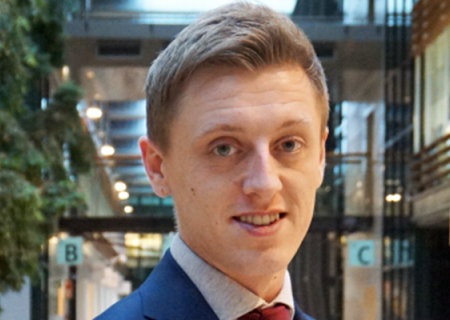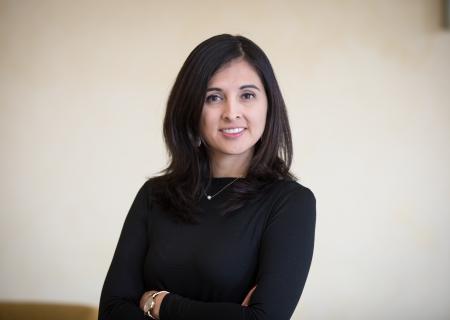Matthias Thomas
INREV Chief Executive Officer
Matthias Thomas arrived at INREV in mid-August 2010 to take over the role of Chief Executive Officer. In the nearly four months since then, he has been extremely busy on a variety of fronts as he has settled in to his new role. We recently had a chance to sit down with him in the INREV offices in the World Trade Center in Amsterdam to talk about how he’s enjoying the experience so far.
Of course, the move to INREV represented quite a change from his former position in Germany, but Matthias says that he hasn’t once regretted leaving the university environment to take up the challenge of leading INREV. ‘The unique combination of members, the INREV team and interesting issues that I’m involved with every day makes the position really great,’ he tells us, adding that if he had known that he’d enjoy it so much, he would have explored making such a move years ago. ‘And my wife and kids really enjoy Amsterdam too,’ he adds.
The unique combination of members, the INREV team and interesting issues that I’m involved with every day makes the position really great.
‘Every day I’m confronted with new and interesting challenges, and I think that the slope of my learning curve is finally decreasing,’ he says. Matthias comments that after his first few months, he’s now in a position to be able to act and shape the development of INREV along with the Management Board and dedicated office team.
Matthias notes that one major recent new initiative is that INREV will start playing a more active role in public affairs and will monitor and report back to members on political developments that could affect the nonlisted real estate funds industry. He tells us that he feels INREV needs to take a long-term perspective on the number of new regulatory initiatives coming out of Brussels. Consistent with this, the Management Board decided to hire a public affairs manager to develop policies and procedures for INREV and, in parallel, to follow upcoming initiatives and assess their impact on INREV members. Taking members’ opinions onboard in developing INREV positions, the public affairs manager might eventually be based in Brussels where they would be closer to the discussions taking place and therefore have a better chance to inform policy makers about INREV’s views on developing initiatives.
‘This is an expansion of INREV’s support to its members,’ he comments. In the first years after INREV’s founding, the main objectives were producing industry standards and guidelines to increase transparency and accessibility. Then the financial crisis struck and INREV focused many of its new initiatives on addressing issues raised by the crisis. But regulatory issues have become increasingly important in the aftermath of the crisis, and Matthias sees the new public affairs role as a natural add-on to the services provided to members. He cautions, though, that there is a challenge presented in being the voice of the non-listed real estate funds industry in the regulatory arena because the INREV membership is so diverse. ‘We need to design a process that develops a common position across the value chain of the industry,’ he comments.
One of the first major accomplishments after Matthias’ arrival at INREV was the launch of the first INREV Quarterly Index. He is quick to point out that the project was started long before he arrived at INREV and that all the praise belongs to Andrea Carpenter, Director Professional Standards and Communications, Lonneke Löwik, Director Research and Market Information, and Casper Hesp. But the importance of having INREV Index results quarterly can’t be overestimated, he adds. ‘Because of the volatility from the financial crisis, annual results weren’t enough,’ he says. He notes that a quarterly index achieves the objective of improving transparency and also makes the INREV Index more useful as an industry benchmark.
Matthias is excited about INREV’s plans to begin freezing the index results when the annual INREV Index for 2010 is released next March. Freezing the index is important so it can be used as a basis for such things as bonuses and performance fees. In combination with this, however, robust style definitions are needed to ensure stable fund classification, he adds, which is being addressed by the Styles Framework project.
We need to design a process that develops a common position across the value chain of the industry.
Research is another area where a lot is going on at INREV, Matthias tells us. Aside from the Styles Project, there is new research into the EU Solvency II Directive that is trying to assess how the directive will affect allocations from insurance companies into non-listed real estate funds. INREV is also looking to expand the Investor Universe series with the release of a new report on Sweden, which may be followed by others, he says. And meanwhile, INREV continues to produce the growing number of annual research projects. He singles out the Fund Termination Study as having special relevance in the current market.
In the area of training and education, Matthias points to the new course on the Solvency II Directive and the two courses just held on the EU Alternative Investment Fund Manager (AIFM) Directive. ‘We recognise the importance of dealing with regulatory initiatives from all sides of the industry and it’s being implemented into the programme,’ he says. Pointing to a number of new initiatives, he tells us that INREV is also looking into certification of its training courses and the basic courses to teach industry fundamentals are being offered again. This past summer, the Summer School offered courses via webinars, which are both time and cost efficient, and INREV is exploring new topics that could replace some of the old topics, while also reexamining forms of delivery.
Looking to the upcoming challenges that he will be facing as INREV moves forward, Matthias notes that continuing to achieve membership growth is an important priority as well as challenge. Until now, he says, INREV has had net membership growth every year, even during the financial crisis. After seven years, though, some members are likely to drop out, but growth opportunities exist in countries relatively less well represented in INREV’s membership, such as France, Italy and Spain, as well as with small to mediumsize members with an investor background throughout Europe.
Following the highly successful CFO Conference in Copenhagen just a few weeks ago, Matthias wants to highlight upcoming events to members, including the Committees Meeting in Frankfurt, which he sees as an excellent opportunity to learn about what is happening at INREV and understand the breadth and depth of the organisation. ‘It’s a great way for new members, especially, to learn about INREV and to meet others in the industry,’ he notes, ‘although the INREV Seminar at MIPIM in March will also be a terrific event.’
Matthias is clearly enjoying the stimulation and challenges presented by his role, as well as by the chance to continue to build on INREV’s past successes.





